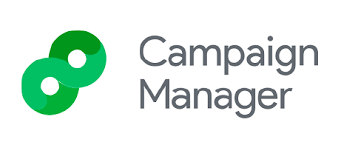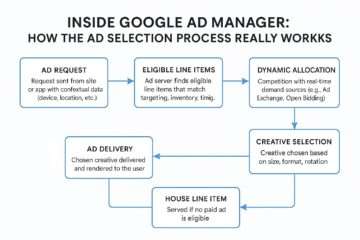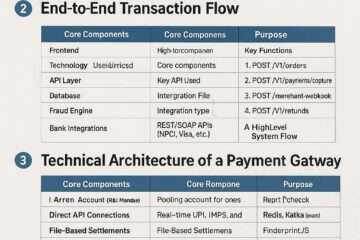

Google parent Alphabet ad revenue disappoints however Google Search Revenue becomes the face-saver.
Google will have three distinct business lines—Search, YouTube, and Cloud—each of which will generate approximately twelve figures annually by the end of the following year.
That is approximately $100 billion each.
For context, Google experienced a fifteen-year growth phase to reach an annual revenue of $100 billion. Subsequently, the company more than tripled its revenue to over $300 billion in less than six years, CEO Sundar Pichai informed investors on Thursday during the Q1 2024 earnings call.
However, notwithstanding their expansion, YouTube and Cloud do not rank among the primary drivers of Alphabet’s overall revenue growth. Google Search, the unchallenged and undefeated heavyweight champion of currency printing, retains that title.
However, Google Search is undergoing a transformation due to generative AI, and Alphabet is adopting a strategic approach to revenue generation.
In contrast, Alphabet’s earnings disclosed that Google’s ad network business continues to experience a decline in revenue.
The Alphabet money machine
Alphabet generated $80.5 billion in revenue during the first quarter, up from $69.8 billion the same period last year.
That’s a 15% increase; however, percentage-based development is hardly applicable to Google, given that a 15% increase in net new dollars would be perfectly acceptable for a company generating hundreds of millions of dollars annually, whereas Google added just over $10 billion.
In 2024, Google’s Q1 profit surpassed $23.6 billion, up from $15 billion in the same period the previous year.
The quarter was prosperous, and investors were satisfied. During after-hours trading, Alphabet stock prices increased from $158 to approximately $176. The surge in the stock price signifies a market capitalization expansion of Alphabet exceeding $100 billion. The enterprise has surpassed a valuation of $2 trillion for the first time ever.
Moreover, what could possibly deter investors from being ecstatic about the news?
In addition to the extraordinary increase in revenue, Alphabet declared its inaugural dividend, which entailed a payment of 20 cents per share to all shareholders. In addition, a new $70 billion share repurchase program has been introduced. (This category of expenditure excites investors as it increases the value of their shares. There are fewer shares on the market and the market capitalization remains unchanged.
In a sense, the only business that suffered a setback for Google was the Google network business, which distributed advertisements across various websites and applications. Once more, Google network revenue decreased annually in the first quarter of 2023, falling from $7.5 billion to $7.4 billion.
Revenue for publishers on the Google network is decreasing on average. Concurrently, lesser public ad technology companies, including PubMatic, Viant, and Magnite, as well as larger firms like The Trade Desk, are increasing their open web revenue.
This indicates that Google’s third-party advertising technology is falling behind autonomous programmatic competitors in the marketplace.
However, Google Cloud’s revenue increased by over $2 billion in the previous year, and the subscription businesses of Google witnessed a growth of $1.3 billion. Ads on YouTube? An increase of $1.4 billion. The revenue of Google Search grew by a remarkable $6 billion.
As a result, neither Google nor its investor base appears overly concerned about the decline of the ad network.
Google’s prospects for expansion
However, notwithstanding Google’s overall rapid revenue expansion, there are a number of domains in which monetization has yet to match organic growth.
One consists of generative AI and other novel forms of search, such as a smartphone user conducting a search by capturing an image. An additional one is YouTube Shorts.
“In response to an investor’s inquiry regarding the potential for greater earnings from overall query growth, Google Chief Business Officer Philipp Schindler stated, “Over many years, when things have performed well on the organic side, monetization follows.” This is due to the fact that many new forms of search are not yet supported by advertisements.
“Moneying concerns exist,” Pichai acknowledged to an additional investor who inquired about the expansion of search queries. Furthermore, drawing from our preliminary testing, I am certain and assured that we will effectively navigate the transition to monetization at this juncture.
Investors favor Google, in part, due to their confidence in the organization’s capacity to gradually monetize organic opportunities.
YouTube Shorts, which are similar in length to TikTok, were introduced in 2021. Subsequently, Google has confronted unsettling inquiries from investors who are troubled by the lack of substantial monetization on Shorts, notwithstanding the considerable organic engagement evidenced by the quantity of posts and overall views.
However, YouTube Shorts is finally beginning to offer more advertising opportunities. According to Schindler, the monetization rate for Shorts is double that of in-stream viewing (i.e., typical YouTube consumption) and has increased by ten percentage points consecutively; this indicates that growth is occurring not only annually but also monthly.
Investor Ruth Porat, CFO, responded, “We are extremely focused on the monetization opportunity.” Porat was responding to an inquiry regarding the management of high cloud costs for new advertising and generative AI products that generate relatively little revenue.
She stated that “everything we do in Google Services and Google Cloud is based on monetization.” “Concurrently, we are extremely concerned with the efficiency of every component involved in delivering that compute capacity, including hardware, software, and more.”




























































